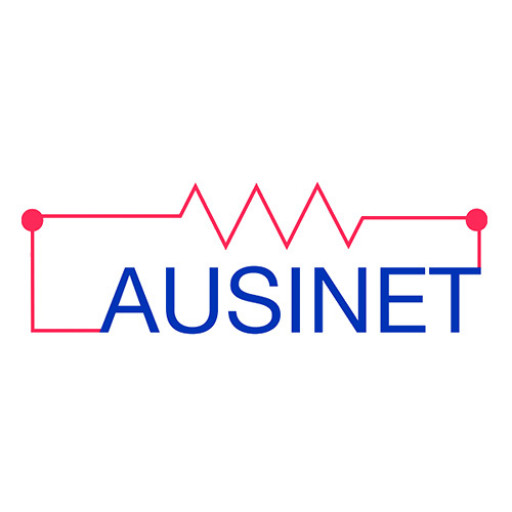Photos of university / #jamescookuniversity
The Graduate Certificate in Infection Control provides health professionals with the knowledge and skills to implement effective pest management procedures within hospitals and other medical care settings.
Program Content: Infection Control at James Cook University
The Infection Control program at James Cook University is designed to equip students with comprehensive knowledge and practical skills necessary to prevent and control infections in a variety of healthcare, community, and laboratory settings. Recognizing the critical importance of infection prevention in safeguarding public health, this program covers a broad spectrum of topics, including microbiology, epidemiology, sterilization techniques, outbreak management, and infection control policies.
Students will explore the science of microorganisms, understanding their roles in disease transmission and how to mitigate associated risks. The curriculum delves into the principles of asepsis, disinfection, and sterilization procedures essential for maintaining sterile environments in hospitals, clinics, and other health facilities. Emphasis is placed on current guidelines and regulations from health authorities, ensuring students gain up-to-date knowledge aligned with national and international standards.
Practical training constitutes a core component of the program, providing hands-on experience in implementing infection prevention measures. This includes training in the proper use of personal protective equipment (PPE), sterilization equipment operation, and the management of infectious waste. The program also covers the development and assessment of infection control programs within healthcare institutions, fostering leadership and critical thinking skills.
Furthermore, students will study outbreak investigation and response strategies, learning to identify infection sources and implement effective containment measures. The program emphasizes the importance of communication and teamwork in managing infectious disease risks and promoting a culture of safety within organizations.
Through a combination of lectures, laboratory exercises, case studies, and internships, graduates will be prepared to work as infection control practitioners, public health officials, or within related roles across diverse settings. The James Cook University Infection Control program ensures that students are well-versed in the latest practices, policies, and innovations essential for protecting individuals and communities from infectious diseases.
Completion of an AQF degree 7 bachelor level in medical, nursing or other relevant medical expert qualifications. It is suggested that applicants have completed at least 12 months (or part time equivalent) of grad experience in a medical field.
The James Cook University offers various financial assistance options to support students enrolled in their Infection Control programs. Domestic students may be eligible for government-funded schemes such as Australia's Commonwealth Supported Place (CSP), which enables them to pay reduced tuition fees subsidized by the Australian Government. Additionally, students can access a range of scholarships specific to health sciences and infection control fields, providing financial relief and recognition of academic excellence. JCU also offers State Government concessions and fee waivers for eligible domestic students, helping to alleviate the economic burden of tertiary education. For international students, tuition fees are usually paid in full or via installment plans, with occasional scholarships or bursaries available for outstanding applicants. Moreover, the university provides students with information on external funding opportunities, including private scholarships and industry sponsorships, which can significantly offset the costs of studies. Financial planning and support services are available through JCU's Student Support Centre, where students can receive expert advice on managing education expenses, applying for financial aid, and accessing loan programs if applicable. The university also promotes flexible payment options that enable students to pay their tuition fees over a period, reducing immediate financial pressure. Students are encouraged to explore government loans, part-time work opportunities, and other financial resources to make their education more accessible. Overall, James Cook University aims to facilitate access to infection control education by offering a comprehensive range of financial supports and resources designed to assist students from diverse backgrounds and financial circumstances.
The Infection Control program at James Cook University is designed to equip students with comprehensive knowledge and skills necessary to prevent, control, and manage infections in various healthcare settings. This program emphasizes understanding the principles of infection transmission, antimicrobial resistance, sterilization techniques, and standard precautions essential for safeguarding patients and healthcare workers. Students will explore the epidemiology of infectious diseases, learn about current best practices in infection prevention, and develop the critical thinking skills needed to implement effective control measures in real-world scenarios. The curriculum often integrates theoretical instruction with practical training, including laboratory exercises and industry placements, to ensure graduates are prepared for the challenges of infection management in hospitals, clinics, and community health environments. The program also covers emerging topics such as healthcare-associated infections (HAIs), outbreak investigation, and infection control policies and regulations. By completing this program, students can pursue careers in hospitals, public health agencies, research institutions, and other healthcare organizations focused on minimizing infection risks. The program is typically offered at the undergraduate and postgraduate levels, providing flexible pathways for students with different academic backgrounds. It also aligns with national and international health standards, preparing graduates to contribute effectively to infection prevention efforts worldwide. Industry partnerships and collaborations with health organizations enhance the practical relevance of the program, ensuring that graduates are well-equipped to meet current and future challenges in infection control.







